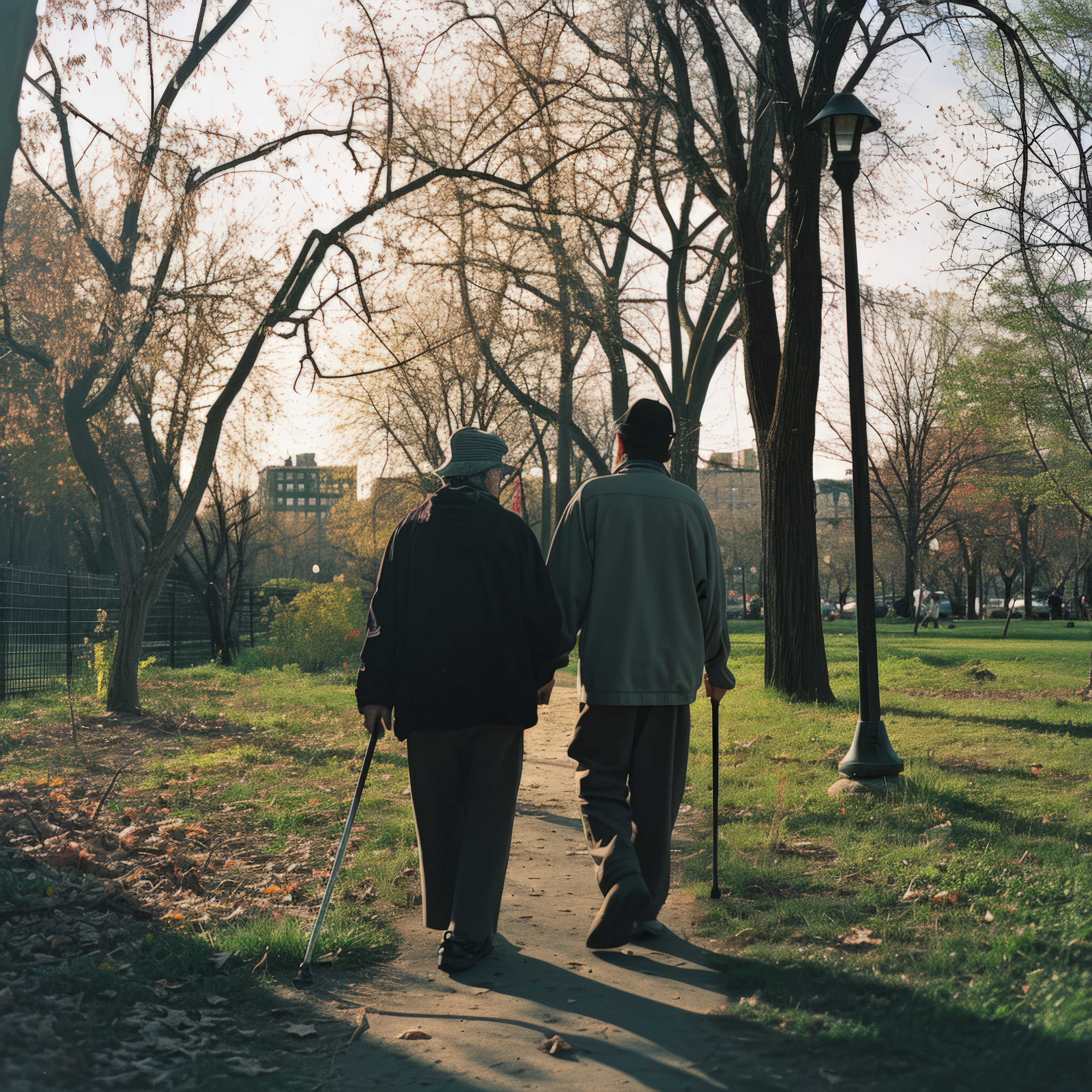blog
Caring for Seniors
1. Physical Activity: Keep Moving for Health
One of the most important things seniors can do for their health is to stay physically active. Regular exercise helps maintain physical health, promotes mental well-being, and can significantly improve mobility. It reduces the risk of chronic conditions such as heart disease, diabetes, and arthritis, while also boosting mood and energy levels.
Types of exercise for seniors:
- Walking: Walking is one of the simplest and most effective forms of exercise for seniors. It helps maintain cardiovascular health, improve balance, and increase endurance. For those who may struggle with mobility, wheelchair transport services can help provide safe and reliable transportation to walking areas or community parks.
- Strength training: Light weights and resistance bands help build muscle strength and improve bone density, which is especially important for preventing falls.
- Stretching and flexibility exercises: Gentle stretches, yoga, and Tai Chi promote flexibility, balance, and relaxation. Many seniors find that activities like these help with joint pain and improve their overall sense of well-being.
- Water aerobics: For seniors with joint pain or mobility challenges, water aerobics is an excellent low-impact workout that is both fun and effective.
Before beginning any exercise routine, seniors should consult with a healthcare provider to ensure the activities are safe and suitable for their individual needs.

2. Social Connection: Combatting Loneliness
Seniors can face social isolation due to retirement, family relocation, or limited mobility. Loneliness and social disengagement can have a significant impact on emotional and mental health, increasing the risk of depression, cognitive decline, and other health issues.
Ways to stay socially connected:
- Community programs: Local senior centers often offer social activities, fitness classes, and group outings that help foster connections with others. Wheelchair transport services can help seniors attend these community activities if they have difficulty getting there on their own.
- Technology: Video calls via platforms like Zoom or FaceTime allow seniors to maintain relationships with family members and friends, even from the comfort of home. Many seniors enjoy using social media to connect with old friends and discover new interests.
- Volunteering: Many seniors find purpose and fulfillment through volunteer work. Whether it's helping at a local food bank, tutoring children, or supporting animal shelters, volunteering offers both social interaction and a sense of accomplishment.
- Pets: Pets provide companionship and routine, making them an excellent source of emotional support. Seniors with pets also enjoy the added benefit of regular outdoor walks or playtime, improving both physical and mental health.
Keeping seniors socially engaged is a powerful way to support their emotional and mental health, especially as they age.
3. Healthy Eating: Nourishing the Body and Mind
Proper nutrition becomes even more important as we age. Seniors often need fewer calories, but they require more vitamins, minerals, and fiber to maintain energy and prevent chronic illnesses. Good nutrition is essential for promoting a healthy immune system, maintaining muscle mass, and keeping bones strong.
Nutritional tips for seniors:
- Eat nutrient-dense foods: Focus on foods that are rich in vitamins, minerals, and antioxidants, such as leafy greens, berries, lean proteins, whole grains, and healthy fats.
- Hydration: Seniors are more susceptible to dehydration due to changes in their sense of thirst. It’s important for seniors to drink plenty of fluids, especially water, throughout the day. Soups and water-rich fruits like cucumbers and melons also help maintain hydration.
- Smaller, more frequent meals: As seniors may experience a decrease in appetite, eating smaller meals more often can help them meet their nutritional needs.
- Supplements: Calcium, vitamin D, and B12 supplements may be necessary for seniors who struggle to get adequate nutrition from food alone.
Maintaining a balanced, healthy diet plays a crucial role in senior health, helping to prevent malnutrition and support an active lifestyle.
4. Safe and Accessible Transportation: Maintaining Independence
For many seniors, mobility challenges can make it difficult to get around, whether it’s visiting a doctor, running errands, or attending social activities. Medical transport and wheelchair transport services are essential resources for maintaining seniors' independence, especially when they can no longer drive themselves or use public transportation.
Transportation options for seniors:
- Medical transport services: Seniors who require medical care or need assistance during transit can benefit from medical transport services, which are equipped to handle individuals with special needs. These services are often used to take seniors to and from medical appointments, providing a safe, comfortable, and timely ride.
- Wheelchair transport: For seniors who rely on wheelchairs, wheelchair transport services ensure they can travel safely and comfortably to appointments, social events, and more. These vehicles are specially equipped with wheelchair lifts and securement systems to ensure safety during transit. This is particularly important for seniors who require a wheelchair or mobility scooter for getting around, as it allows them to maintain their independence without worrying about the challenges of transferring in and out of a vehicle.
- Rideshare options: Services like Uber and Lyft now offer rides specifically for seniors, with additional support like helping seniors into and out of the vehicle. Many of these ridesharing services are wheelchair accessible, ensuring those with mobility limitations can get where they need to go.
- Volunteer driving programs: Many communities offer volunteer driving services to help seniors get to medical appointments, grocery stores, or other important places. This option is often free or low-cost, making it an excellent solution for seniors who have limited transportation options.
Safe and reliable transportation options are essential for seniors to remain independent, stay connected, and continue to participate in daily activities and healthcare appointments.
5. Mental Health: Caring for the Mind
Mental well-being is just as important as physical health for seniors. Cognitive decline, memory loss, and depression can significantly affect a senior's quality of life. It's important to keep the mind engaged and provide emotional support as seniors navigate this phase of life.
Ways to support mental health:
- Brain exercises: Activities like puzzles, reading, learning new skills, or playing games such as chess or bridge can keep the brain active and sharp.
- Therapy and counseling: Seniors experiencing depression, anxiety, or cognitive issues should seek professional help. Cognitive Behavioral Therapy (CBT) and other forms of talk therapy can support emotional well-being.
- Mindfulness practices: Meditation, deep breathing, and journaling can help reduce stress and increase mental clarity, which is vital for overall mental health.
Mental health is crucial for seniors’ overall well-being, and strategies to keep the mind active and positive can significantly improve their quality of life.
Conclusion
As seniors age, staying active, socially engaged, and mentally healthy is key to leading a fulfilling life. But for many, the physical challenges of aging, including mobility limitations, can pose barriers to maintaining independence. Medical transport and wheelchair transport services are invaluable tools for ensuring that seniors can access the care, social activities, and appointments they need to continue living their lives with dignity and joy.
By promoting physical health, mental well-being, social connections, and providing accessible transportation options, we can help seniors live happy, independent, and healthy lives—well into their golden years.
categories
Social links
DO YOU STILL HAVE A QUESTION REGARING OUR SERVICES?
Feel free to contact us for safe and reliable NEMT (Non Emergency Medical Transportation) services!

